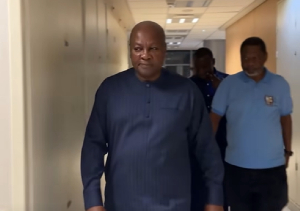Have you ever seen crabs in a bucket? You will realize it is impossible for any crab to escape. Why? If one crab attempts to escape from the bucket, the others pull it back rather than help I although they all share the same motive, drive to survive and be free.
This malicious nature existing amongst them defeats their collective purpose; this interesting metaphor is termed “Crab Mentality”. It is simply phrased as “if I can’t have it, you mustn’t have it too”.
The phenomenon I believe currently characterizes the African continent. Pan Africans and the African union have failed to unite the continent. Disunity is the major setback in Africa shackled by its dogmatic adherences.
Africa is one of the richest continents in the world in terms of natural resources yet the “poorest continent”. It has an estimate of 120 billion barrels of oil reserves, less than half of Saudi Arabia, 600 million hectares of uncultivated arable land; half of the world’s total according to the African Development Bank.
This has raised several torn arguments on why Africa is yet underdeveloped. Her inability to have a single voice in dealing with other continents has led to the mitigation of the resources of Africa, enabling Western powers to influence the forces of supply and demand even when she is the sole producer of these resources.
Africa has been deprived gravely as a result of this happening, causing resources to be undercharged and benefits to the continent at ground zero. Furthermore, Africa is said to be at a great risk losing over 60bn dollars annually due to illegal outflows and price spikes in the extraction of minerals with most of its returns going offshore.
Natural resource industries have produced “enclave economies” as a result generating wealth that is not utilized in areas of importance to remedy human development challenges. For instance, although Ghana is the second leading producer of cocoa beans in the world, there are still high levels of poverty and underdevelopment in the country, especially in rural areas whose survival are almost entirely dependent on agriculture.
The inability of Africans to have full control of resources on the continent has denied them the opportunity to empower themselves economically and has led to the vicious cycle of poverty. According to a World Health Organization report, “Bridging the Gaps”, poverty is now the leading cause of premature death across the world especially in the developing areas like sub-Saharan Africa. Until Africans discard the erroneous mentality of the crabs and stand united; no amount of external aids, grants and or technocrats imported from elsewhere would help develop the continent.
Ghana’s first President, Dr. Kwame Nkrumah in one of his famous speeches said, “Salvation for Africa lies in unity… for in unity lies strength and I see it, African states must unite or sell themselves out to imperialist and colonialists’ exploiters for a mess of pottage or disintegrate individually”. The recurrent attitude of African leaders to champion their personal gains rather than the collective interests of the continent has caused the masses to consistently wallow in poverty and remain underdeveloped.
This has clearly consolidated the practice of African dependency. The self-seeking nature of some of our leaders are in no way different from those of the colonial masters. The very thing Africans fought against during the decolonization period.
It was easy to judge the acts of colonial masters, but how different is the political leadership now from then? Where is the unity now? It is about time that we forge for a coalition of African countries with dedicated political leadership and commitment.
Lack of unity on the continent has led to the emergence of several violent conflicts in countries such as Somalia, Rwanda, Liberia and Sierra Leone which has disrupted the internal peace and security of the continent.
Our leaders continue to talk about African unity but under so many circumstances have they sided with “outsiders” against their own fellow African leaders as witnessed in the overthrow of leaders such as Patrice Lumumba of DR Congo, Muammar Gadhafi of Libya and Kwame Nkrumah of Ghana. African leaders continue to remain unconcerned as the continent is turned into a dumping ground for inferior goods. Even on issues of grave concern such as Ebola and conflicts, the continent looks up to the West to remedy the problems.
In the past, we blamed colonialism for Africa’s underdevelopment, but we have the resources.
What stops Africa from achieving social and economic development? It is only when we as a continent unite that we can achieve this.
Adelaide Yiriyelleh
The Voice GH
TheVoiceGh@yahoo.com
Opinions of Thursday, 11 February 2016
Columnist: Adelaide Yiriyelleh














